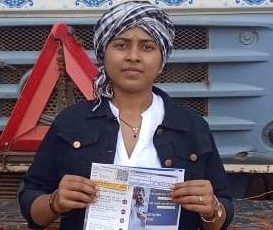 As we celebrate International Women’s Day, Sightsavers India shares a compelling and inspiring story highlighting the intersection of women’s empowerment, inclusive healthcare, and breaking gender barriers in male-dominated professions.
As we celebrate International Women’s Day, Sightsavers India shares a compelling and inspiring story highlighting the intersection of women’s empowerment, inclusive healthcare, and breaking gender barriers in male-dominated professions.
Sightsavers India realises the importance of eye health for the overworked truckers’ community in ensuring road safety. Since drivers cannot access eye care services, Sightsavers in India created a system which takes the services directly to them. RAAHI is one of the biggest eye health programmes in the country that provides vision screenings and corrective eyewear to the overworked truck drivers’ community.
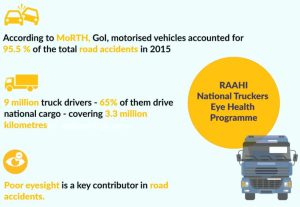
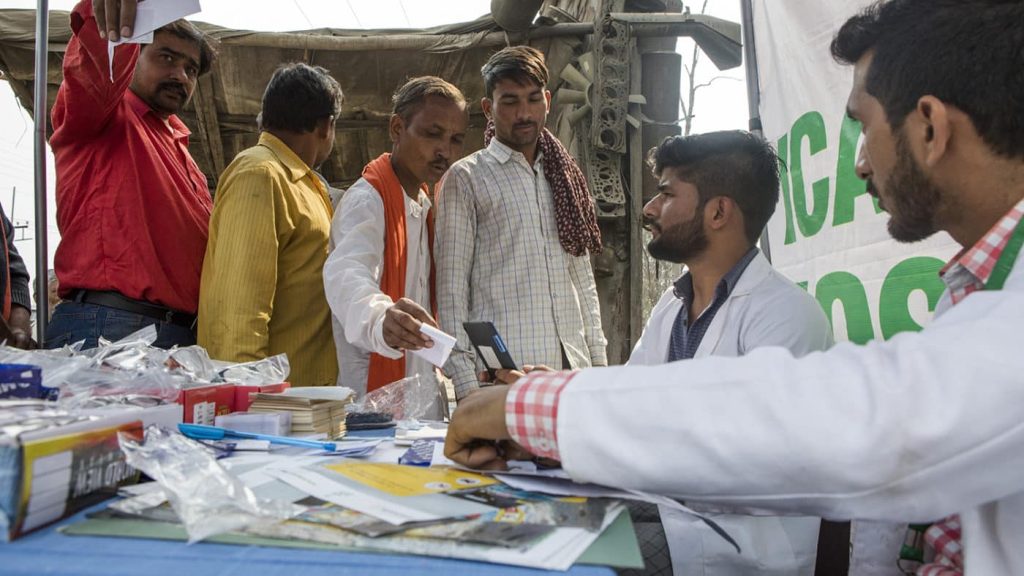 There are 54 locations across the golden quadrilateral and the North South-East West (NSEW) network, which covers the main long distance haulage routes across the country. Some are permanent vision centres, others pop-up outreach camps, but all are in locations where drivers stop as part of their usual route to rest or unload cargo.
There are 54 locations across the golden quadrilateral and the North South-East West (NSEW) network, which covers the main long distance haulage routes across the country. Some are permanent vision centres, others pop-up outreach camps, but all are in locations where drivers stop as part of their usual route to rest or unload cargo.
Recently, they came across India’s first woman truck driver, Kaajal. She had been struggling with deteriorating vision, which was affecting her ability to work safely. Thanks to RAAHI’s timely intervention, she received an eye check-up and prescription glasses, allowing her to continue her career with confidence and clarity.
Her story is just one example of how access to basic eye care can transform lives, enable financial independence, and empower women in unconventional roles.
With many women in India facing barriers to healthcare, including vision care, this initiative is a step toward ensuring that they are not left behind.
Can you take us back to the beginning of your journey as a truck driver? What inspired you to pursue this unconventional career, especially considering the societal norms in your community?
My journey behind the wheel started with a deep sense of responsibility towards my family, particularly my father, who longed for a son to carry on his legacy. In our conservative society, where gender roles were strictly defined, being one of seven sisters meant defying norms was inevitable. Witnessing my father’s yearning for a son to inherit his business, I pledged to become the ‘son’ he wished for, determined to support my family regardless of societal expectations.
Breaking stereotypes is no small feat. How did you deal with the challenges and scepticism you may have faced when entering a profession traditionally dominated by men?
The journey was not without its hurdles. My decision raised eyebrows among the elders and relatives, questioning my integrity and safety in a male-dominated field. Yet, with support from my parents, who believed in me wholeheartedly, I found the strength to persist.
During the eye check-up, the medical staff expected to find common issues related to prolonged exposure to sunlight and dusty roads. Were you ever concerned about the potential impact of your profession on your health, and how do you maintain your overall well-being while on the road?
Long hours on dusty, sunlit roads naturally sparked concerns about my eye health. I was glad to encounter a Mobile Eye Health Unit, an initiative of Sightsavers India’s RAAHI Programme that conducts eye screening for drivers like me.
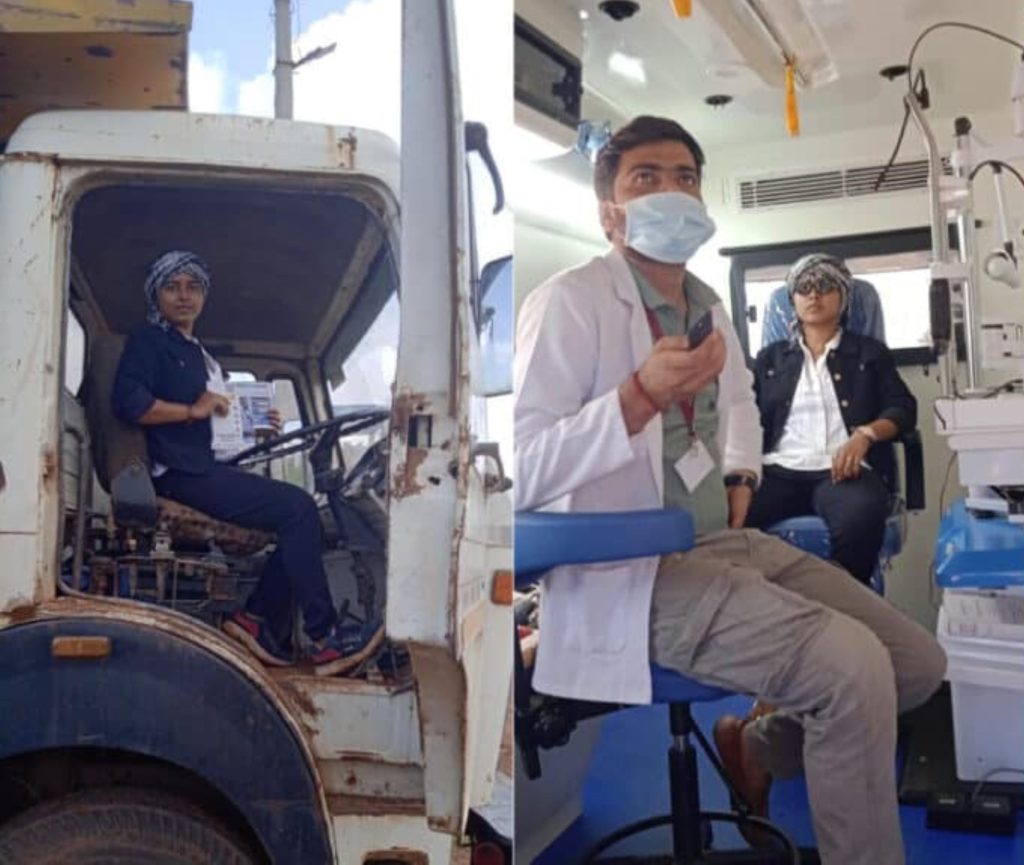
How did Sightsavers India support you through this programme?
Through the Sightsavers India’s RAAHI Programme, I experienced invaluable support. During my return trip from Durg, I came across a mobile eye health unit tailored specifically to screen drivers. Availing myself of this opportunity, I had my eyes checked, and the reassurance that my eyes were in good condition was a tremendous relief. This simple act of getting a check-up alleviated my fears and instilled a sense of peace of mind.
The RAAHI Programme focuses on bringing healthcare services to truckers at their convenience. How crucial is it for individuals in unconventional professions like yours to have access to such mobile health units?
Access to mobile eye health units, especially for individuals in unconventional professions like mine, is absolutely crucial. Truckers spend long hours on the road, often far from traditional healthcare facilities. Having healthcare services brought directly to us through initiatives like the RAAHI Programme ensures we can prioritise our health without disrupting our work schedules. These mobile units provide convenience and promote regular health check-ups and early detection of eye problems. Ultimately, this proactive approach to healthcare benefits individual truckers and contributes to safer roads and healthier communities overall.
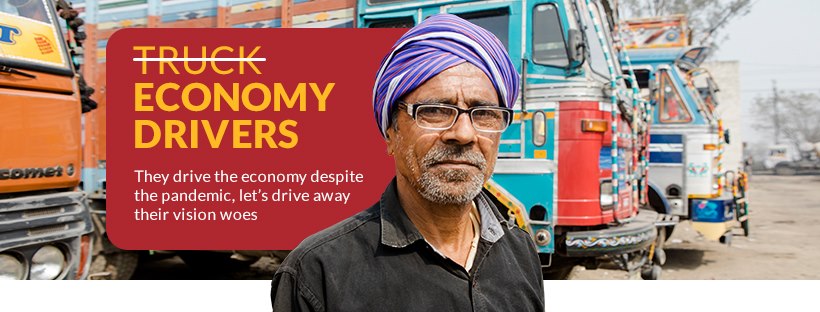
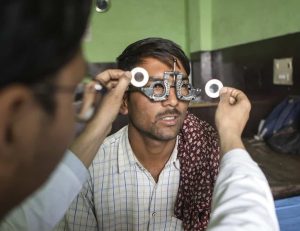
You shared your story with the locals during the eye clinic visit. How important is it for you to be a role model and inspire others to challenge stereotypes and pursue their passions?
Being a role model means more than just driving trucks; it is about breaking stereotypes and encouraging others to pursue their dreams, regardless of societal barriers. Sharing my journey empowers others to defy norms and embrace their true potential.
Can you tell us about a particularly challenging or memorable experience you’ve had while driving trucks? How did you overcome it, and what did you learn from that situation?
Challenges are part of the journey. From punctured tyres to unforeseen obstacles, every hurdle taught me resilience and the importance of being prepared, lessons passed down from my father.
What advice do you have for other women who aspire to break barriers in male-dominated professions, and how can they navigate the challenges they might encounter along the way?
My advice is simple: Don’t let the fear of judgment hold you back. Embrace your journey with courage and determination, and never underestimate your capabilities. The only opinion that matters is your own. And never fixate on ‘Log Kya Kahenge!’
Given your unique journey, have you noticed any positive changes or shifts in societal perceptions towards women pursuing non-traditional careers in your community?
Over time, perceptions have evolved, witnessing my dedication and success. Even my father, once longing for a son, now proudly declares that I surpass any male counterpart.

